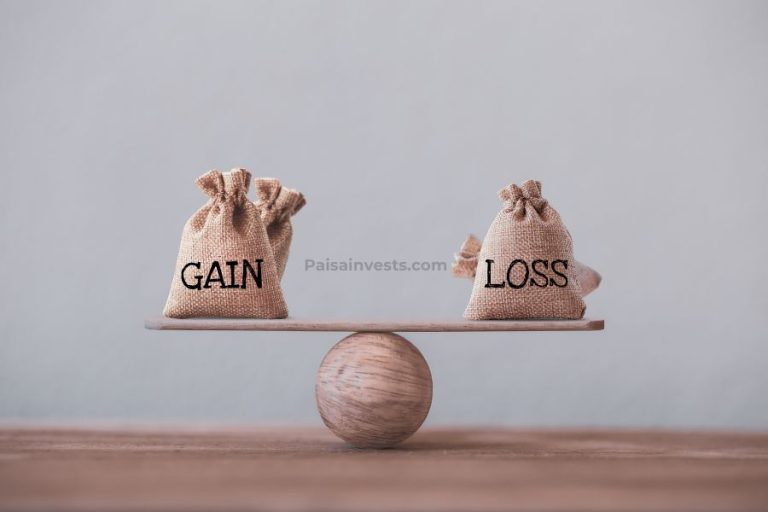When you dip your toes into the waters of investing, you’ll inevitably come across the term “capital gains tax.” It’s like the taxman’s silent partner in your investment journey. But what exactly is it? Let’s dive in and demystify this crucial aspect of investing.
Table of Contents
Understanding Capital Gains
Definition of Capital Gains
First things first, what are capital gains? Simply put, it’s the profit you make from selling an asset—be it stocks, real estate, or even artwork—at a price higher than what you paid for it.
Types of Capital Gains
Capital gains can be categorized into two main types: short-term and long-term. Short-term gains apply to assets held for one year or less, while long-term gains are for assets held for more than a year.
Capital Gains Taxation
Now, onto the taxing part. Capital gains tax is the levy imposed on the profits earned from the sale of these assets. The tax rate depends on various factors, including your income and how long you’ve held the asset.
Calculating Capital Gains Tax
Navigating the labyrinth of capital gains tax requires understanding its calculation intricacies.
Cost Basis
Your cost basis is the original purchase price of the asset, adjusted for factors like dividends, stock splits, and commissions. It serves as the foundation for determining your capital gains.
Holding Period
The duration you hold onto an asset plays a significant role. As mentioned earlier, the tax rate differs for short-term and long-term gains, incentivizing long-term investments.
Tax Rates
Short-term gains are taxed at ordinary income tax rates, which can be substantially higher than long-term capital gains tax rates. Long-term gains have preferential tax treatment, with rates typically lower than ordinary income tax rates.
Exemptions and Deductions
Certain exemptions and deductions can lower your capital gains tax liability. For instance, primary residences are often eligible for exclusion from capital gains tax up to a certain limit.
Impact of Capital Gains Tax
Investors
Capital gains tax can significantly affect investment decisions. High tax rates may discourage frequent trading, encouraging a more long-term investment approach.
Economy
The capital gains tax policy can impact economic growth and investment behavior. Governments often adjust these tax rates to influence investor behavior and stimulate economic activity.
Strategies to Minimize Capital Gains Tax
Now, let’s explore some savvy strategies to keep more of your hard-earned gains in your pocket.
Long-Term Investments
By holding onto assets for more than a year, you can qualify for lower long-term capital gains tax rates, effectively reducing your tax burden.
Tax-Loss Harvesting
Offsetting capital gains with capital losses through a technique called tax-loss harvesting can help mitigate tax liabilities.
Retirement Accounts
Investing in retirement accounts like 401(k)s or IRAs provides tax advantages, allowing your investments to grow tax-deferred or even tax-free until withdrawal.
Conclusion
Understanding capital gains tax is vital for every investor’s financial literacy. By grasping the nuances of how it works and implementing smart strategies, you can navigate the investment landscape more effectively while minimizing your tax liabilities.
FAQs (Frequently Asked Questions)
1. Is capital gains tax the same for all types of assets? No, capital gains tax rates can vary depending on the type of asset and how long you’ve held it.
2. Are there any exemptions for capital gains tax? Yes, certain assets, like primary residences, may be eligible for exemptions from capital gains tax up to a certain limit.
3. Can I offset capital gains with capital losses? Absolutely! Tax-loss harvesting allows you to offset gains with losses, potentially reducing your overall tax liability.
4. What happens if I hold an asset for exactly one year? If you hold an asset for precisely one year, it’s considered a long-term investment, qualifying for lower long-term capital gains tax rates.
5. How often do governments adjust capital gains tax rates? Capital gains tax rates can be subject to legislative changes, so it’s essential to stay updated on tax laws and regulations.
For More Visit: https://paisainvests.com/blog/
Disclaimer: The articles on PaisaInvests.com are solely for educational purposes. While we endeavor for accuracy, we make no guarantees regarding completeness or reliability. Readers are advised to conduct their own research and seek professional advice before making any financial decisions. We are not liable for any loss or damage incurred from the use of information provided. Additionally, we do not control the content of external websites linked within our articles.



